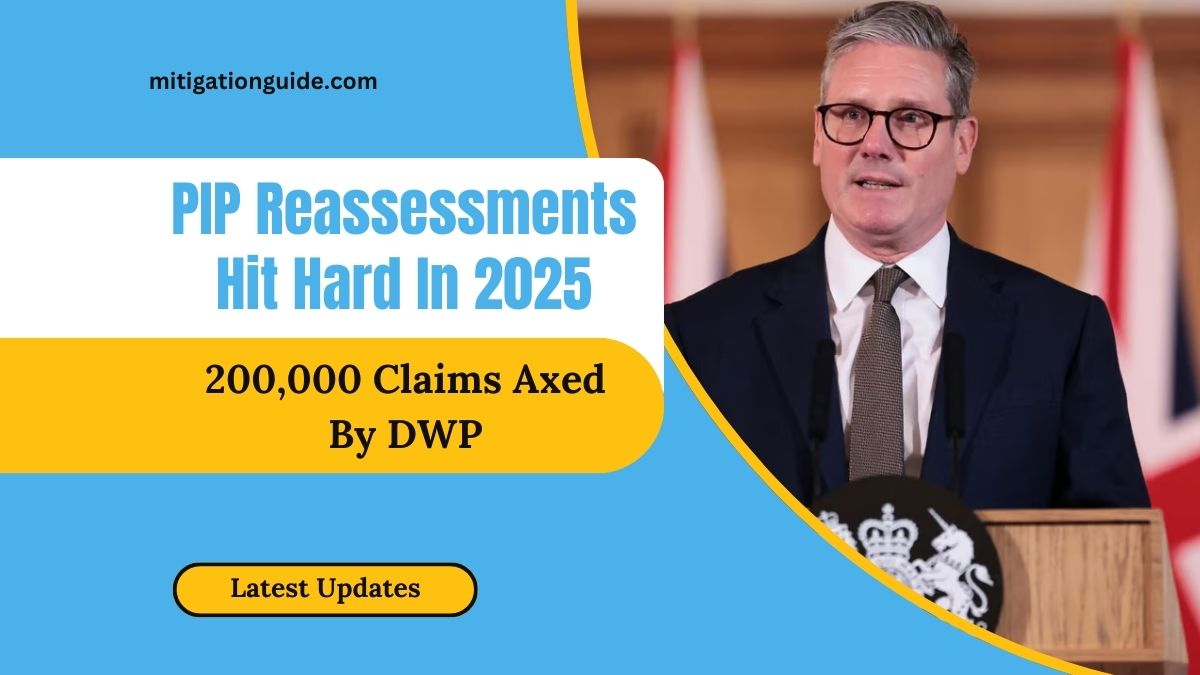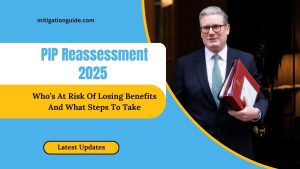In 2025, thousands of disabled individuals across the UK are facing hardship as the Department for Work and Pensions (DWP) pushes forward with a sweeping reassessment of Personal Independence Payment (PIP) claims.
As part of a cost-cutting and benefit reform strategy, an estimated 200,000 claims have been revoked, sparking concern among advocacy groups and impacted claimants.
What Is PIP and Why Is It Being Reassessed?
Personal Independence Payment (PIP) is a benefit offered to people aged 16 and over who live with long-term physical or mental health conditions. It helps cover the extra costs of daily living or mobility difficulties. PIP is made up of two parts:
- Daily Living Component
- Mobility Component
Each part is paid at either a standard or enhanced rate, depending on how much assistance someone needs.
In 2025, the DWP launched a large-scale reassessment drive to ensure that only those who meet the updated eligibility criteria continue receiving payments. This follows reforms aimed at streamlining disability benefits and reducing fraudulent or outdated claims.
Impact of Reassessments in 2025
The most recent data reveals just how impactful this reassessment wave has been:
| Outcome of Reassessment | Percentage of Cases | Estimated Affected Claimants |
|---|---|---|
| No Change in Award | 52% | 520,000 |
| Increased Payment | 19% | 190,000 |
| Reduced Payment | 8% | 80,000 |
| Claims Revoked | 21% | 200,000 |
Approximately 1 million claimants underwent reassessment, with a staggering 1 in 5 losing their entitlement completely.
Why Were So Many Claims Axed?
The DWP stated that updated assessment guidelines and criteria changes led to the disqualification of many claimants. Key reasons include:
- Improved medical conditions
- Failure to meet new eligibility thresholds
- Incomplete or outdated medical evidence
- Failure to attend reassessment appointments
However, critics argue that the system is rigid and does not account for fluctuating conditions like mental illness or chronic pain.
How This Affects Individuals
Losing access to PIP can have a devastating impact. Aside from the loss of vital financial support, many affected individuals also lose access to:
- Blue Badges (disabled parking)
- Motability vehicles
- Additional housing or council tax support
- Other means-tested benefits
It also causes emotional distress, especially for people with lifelong health conditions who now face long appeal processes or reapplications.
What to Do If Your PIP Claim Is Revoked
If you’ve had your claim revoked, you still have options:
1. Request a Mandatory Reconsideration
You can ask the DWP to review their decision. This must be done within one month of receiving your decision letter.
2. Appeal the Decision
If the reconsideration fails, you may lodge an appeal to an independent tribunal.
3. Reapply If Circumstances Change
You may submit a new claim if your condition worsens or if you missed submitting key evidence the first time.
The DWP’s 2025 PIP reassessments have stripped 200,000 people of their disability benefits, raising serious questions about the fairness and sensitivity of the system.
While the government aims to ensure only valid claims are supported, the real-world impact on disabled individuals is significant.
If you or a loved one is affected, it’s crucial to act quickly, gather medical evidence, and understand your rights under the appeals process. In these challenging times, staying informed is your strongest tool.
FAQs
Can I lose my PIP even if my condition hasn’t changed?
Yes. Even if your condition is the same, changes in assessment criteria or interpretation by the DWP can still lead to revoked payments.
How long does the appeals process take?
The Mandatory Reconsideration can take a few weeks. An appeal may take 2–6 months, depending on case complexity.
Will I continue receiving payments while I appeal?
In most cases, payments stop once your claim is ended. If you win the appeal, backpay may be issued.




